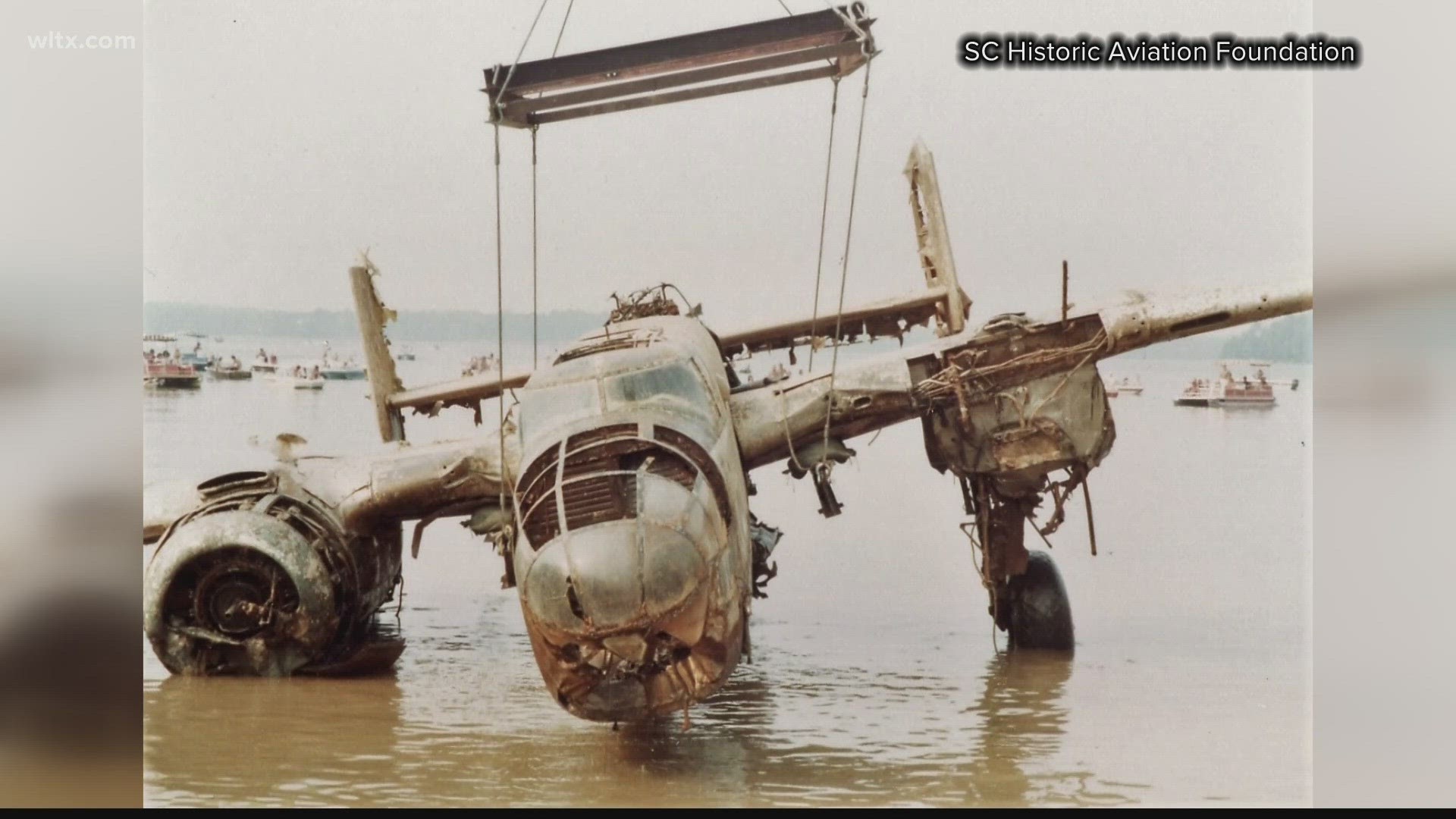COLUMBIA, S.C. — A crowd filled Jim Hamilton - L.B. Owens Airport on Saturday to celebrate four decades since a B-25 bomber plane was found in Lake Greenwood.
Call it an obsession or a historic curiosity, but Ken Berry's love for aircraft is palpable. He's the president of the South Carolina Historic Aviation Foundation and one of the volunteers who has spent years working on the B-25C bomber plane. He said the history of the bomber begins in Columbia at CAE.
"Back in that day, it was called Columbia Army Air Base. It was used in Greenville at the Donaldson Center, which in those days was called Greenville Army Air Base. It was a training plane that was used back and forth between the bases," Berry said. "They dropped bombs in lake murray, they weren't real bombs; they were filled with wet sand."
He said that, on June 6, 1944, the plane crashed into the water at Lake Greenwood during one of those practice bombings, where it disappeared for decards. Nearly 40 years later, the plane was recovered by a group of Navy deep divers, including Chuck Messick.
"We had to do everything by feel," Messick said. "Then from there, after we found the aircraft, we put together a plan."
"A few months after we found the plane, put together the plan, and then came down and recovered," he said.
After being purchased by the Historic Aviation Foundation in 2012, the plane was moved to the Jim Hamilton Airport, where it's been refurbished by a group of volunteers. Berry estimated that thousands of dollars have been spent on maintaining the plane, money that comes from grants and, to a larger extent, donors. On Saturday, the foundation hosted an open house celebrating its history.
Messick said he was amazed at how much the plane has changed since he found it. He said the goal is to use this plane to educate younger generations about the sacrifices of those who served.
"We lose a little bit of the understanding of the sacrifices that really had to happen in World War II for us to be Americans," he said. "That sacrifice, I'm worried it would be difficult for us today to do that and hope that we never have to. But you do better if you understand what really did happen at the time to know that you don't want to be there again."
The Historic Aviation Foundation's next open house is on Sept. 9.

